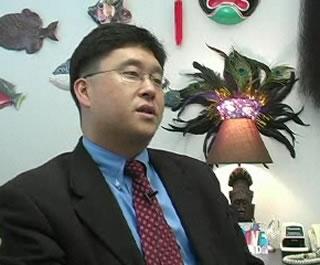
Associate Professor of Medicine
Harvard Medical School, Dana-Farber Cancer Institute
Senior Associate Member
Broad Institute of Harvard and MIT
Dr. Hahn's research focuses on how cancer forms. He is interested in the mechanisms that allow cancer cells to reproduce indefinitely, including an enzyme called telomerase. He also works to develop new model systems to study cancer. In this interview Dr. Hahn discusses his research and the impact of the human genome project on cancer researchers.
Interview Questions
About Dr. Hahn
(时间:
0min
10sec
)
How did you first become interested in research?
(时间:
0min
34sec
)
How did you get to where you are today in your career?
(时间:
0min
30sec
)
What is a stem cell?
(时间:
1min
36sec
)
What is reverse transcriptase?
(时间:
1min
11sec
)
What is telomerase and what role does it play in cancer?
(时间:
2min
29sec
)
What can be learned from the model systems you produce?
(时间:
1min
29sec
)
What are phosphatases and kinases?
(时间:
2min
24sec
)
What is the single biggest challenge faced by researchers in your field?
(时间:
2min
31sec
)
Specifically, how does having the human genome impact your research?
(时间:
3min
1sec
)
Do you involve undergraduates in your research?
(时间:
2min
7sec
)
How has your choice to combine MD and PhD affected your research?
(时间:
1min
17sec
)
What are you currently working on in your lab?
(时间:
0min
52sec
)
